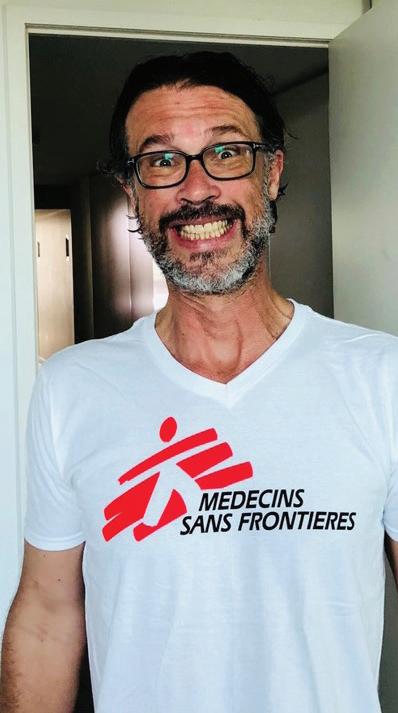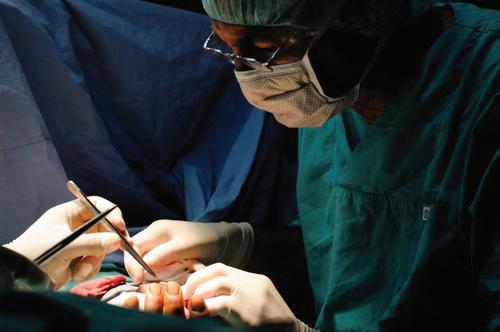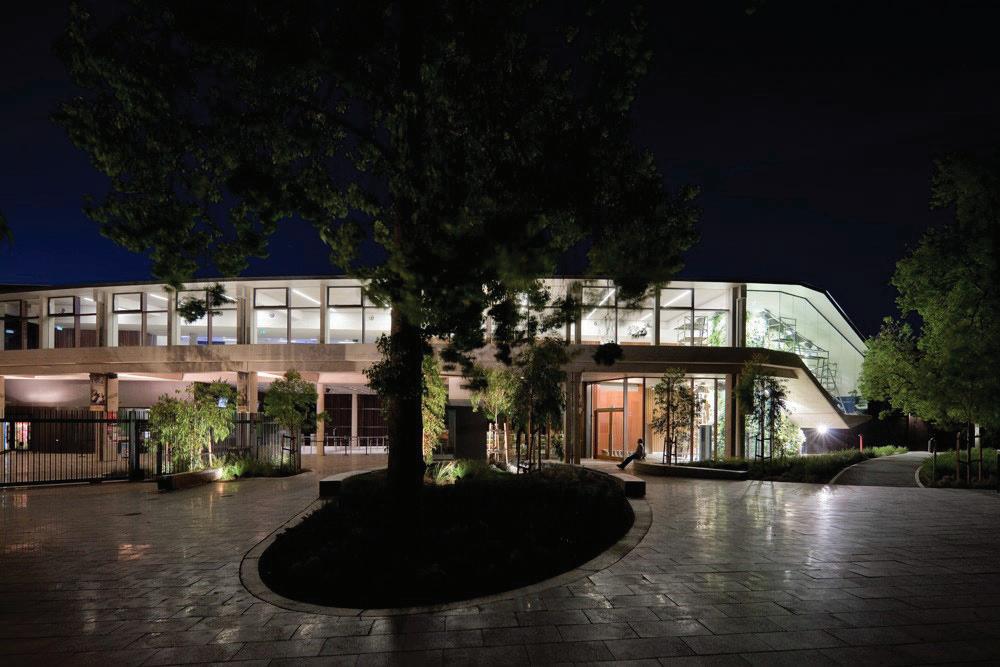
4 minute read
Meaningful medicine
Meaningful medicine at its best
Twenty-five years ago Professor Herwig Drobetz, then a medical student in Austria, attended a presentation by a surgeon who had returned from an assignment with international humanitarian aid organisation Médecins Sans Frontières (MSF), also known as Doctors Without Borders. Professor Drobetz was so captivated that he decided instantly that he wanted to be part of the movement that he describes as “meaningful and immediate medicine”. He trained as a specialist trauma surgeon in Austria and moved to Queensland for a Fellowship before finally establishing roots in Mackay as an orthopaedic surgeon. Fast-forward to 2018, and that life-long dream came into fruition when Professor Drobetz was matched to work with MSF in Hassakeh, in north-eastern Syria. “Every day in Syria we saw patients with gunshot wounds and severe burns and victims of landmines. Working alongside a general surgeon, we focused mainly on acute surgery for life-threatening injuries,” he said. During his second and third stints with MSF, this time in Gaza, the surgical approach was different. The project focused on surgical and post-operative care, including rehabilitation and mental health support, for people who were injured during the Great March of Return protests in 2018 and 2019. Thousands of protestors were shot – mostly in the legs – resulting in chronic wounds, fractures, bone defects and infections. It was well outside his comfort zone: “It’s highly specialised surgery. Reconstructive work on lower extremities with chronic infections is not easy and you have to be quite specialised for that.” He applied the techniques and procedures he would back home, with some improvisation. “We started introducing the Masquelet technique in Gaza – an elegant way to deal with bone defects in a low resource setting, making later bone grafting much easier. Although the technique is regularly used in Australia and many other countries, it was not available in Gaza. We had to overcome a few hurdles, for example we had no intraoperative imaging (relying solely on vision) and difficulty getting bone cement into Gaza. Stable fixation was also difficult as we didn’t have access to plates or nails, just external fixators.” “In my hospital back home in Lismore, northern New South Wales, I am doing about five Masqualet cases per year; whereas, in Gaza there are about 4000 patients who could benefit from it. This is
Advertisement
just one step, however, and you then need to cover that bone with muscle flaps with input from the plastic surgeon,” he said. “The biggest challenge in Gaza is that you have thousands of patients who need sophisticated reconstructive procedures on their lower extremities, and there’s not enough surgeons trained to do that,” Professor Drobetz explained. For anyone considering a placement with MSF, Professor Drobetz said, “I was quite apprehensive about whether I had the skills to deal with the unknown, but I prepared by reading papers, books and attending several courses focused on surgery in low-income and resource-poor settings. You can expect to be working
outside your comfort zone, but you quickly learn how to do a lot with nothing and it is extremely rewarding. “You really go back to basics and learn how to improvise under pressure. The best part about it are the experiences you form with the local surgeons – I’ve made wonderful friends both in Syria and Gaza as a result.” Regardless of where you go, the most important thing is to make your contribution sustainable, said Professor Drobetz. “Do not sign up with the intent to do sophisticated surgeries because you’re only there for eight weeks. “Instead focus on training so that you have staff on the ground who can continue to manage the patient followup. There needs to be continuity of care and informed follow-up. “Going with a well-established organisation like MSF is extremely crucial because they have a big network of support to help you through it. It is meaningful medicine at its best!” Médecins Sans Frontières, or Doctors Without Borders, is urgently recruiting general, paediatric, plastic and orthopaedic surgeons available to work in the field for up to eight weeks. For more information visit www.msf.org. au or contact SydneyFieldHRRecruitment@ sydney.msf.org

8 weeks spare?


WE URGENTLY NEED SURGEONS Learn more MSF.ORG.AU

South Australian Annual Dinner & 2020 Anstey Giles Lecture
SAVE THE DATE
Friday 6 November 2020

Sanctuary, Adelaide Zoo
Anstey Giles Lecture presented by Natasha Stott Despoja AO Sir Henry Newland recipients will be awarded
Royal Australasian College of Surgeons Telephone: 08 8239 1000 Email: college.sa@surgeons.org Website: www.surgeons.org

Spotlight on
Advocacy during COVID-19
Advocacy update Fires, floods and COVID-19 Telehealth in the bush Why the title ‘surgeon’ matters 28 30 32 35
The Royal Australasian College of Surgeons is committed to adopting informed and principled positions on issues of public health.
We have a proud tradition of effecting positive change in health care and the broader community by regularly advocating for positions across a number of different mediums. This includes through media, public campaigns, negotiating directly or by providing written submissions to governments.







